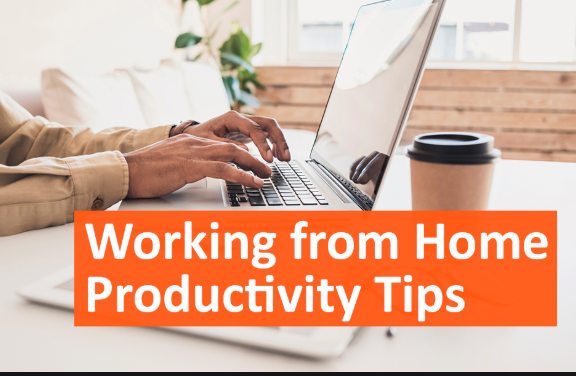
By Debbie Gregory.
Currently you might be working from home due to the COVID-19 pandemic. Below are a few more tips to help you get into the swing of working at home, help you be productive from your new home office and help you maintain your overall mental well-being:
Establish and Keep Regular Working Hours:
It is important to set for yourself and make clear when you are working and when you are not. If possible, try to keep with the hours you normally worked at our office. If those hours were 9am to 5pm then try to make that time period, your workday. Working from home has placed you in charge of your environment and your work schedule. This means that you will have to hold yourself accountable as well as recognizing when enough is enough and not overdoing it and burning out.
Communication is Key:
If you are just learning how to work from home, the transition will require a great deal of patience and good communication skills because you will encounter a variety of challenges in your new workday.
Put together a plan that clearly spells out expectations for how often you should check in and how you will tackle any changes or new assignments. This plan is likely to change as you go along. And that is OK.
This is a new and unique situation for everyone. It is important to make sure that you are communicating with your coworkers and managers as issues or challenges come up in order to overcome them appropriately and quickly. Never hesitate to reach out to the same people that you would normally turn to for help.
Recreate Your Commute to Help Prepare Yourself for Work:
Your morning commute does not only get you to work; it also gives your brain time to prepare for work. Just because you are not leaving your home to work right now does not mean you cannot help yourself mentally prepare for your workday in a similar manner. If you listen to music on the way to work, start your day with the radio on. Maybe play with your pet, do a quick workout, or spend a few minutes on your favorite hobby.
The same goes for after work. If you generally spend time commuting back home and can wind down from the day, then do something at the end of your designated workday to help unwind. Maybe walk the dog, do some yoga, or read a bit.
Remember to Socialize:
Working from home cuts you off from the casual interactions you would normally have with your colleagues. A lot of people find this incredibly lonely and isolating. Make sure that you schedule regular talks with coworkers or managers, even if these chats are only a couple of minutes long. Additionally, try to schedule less formal chats with your coworkers such as a virtual happy hour after work or a catch-up session. Don’t forget to schedule regular virtual visits or happy hours with your friends and family during this time too.
VAMBOA hopes that these tips will help you to prepare your home office setup and assist you in creating a productive and workday. Remember that even though our world is upside down now, it is more important than ever to reach out, connect with and take care of one another.
BE SAFE AND OBSERVE STAYING IN PLACE AND SOCIAL DISTANCING!











